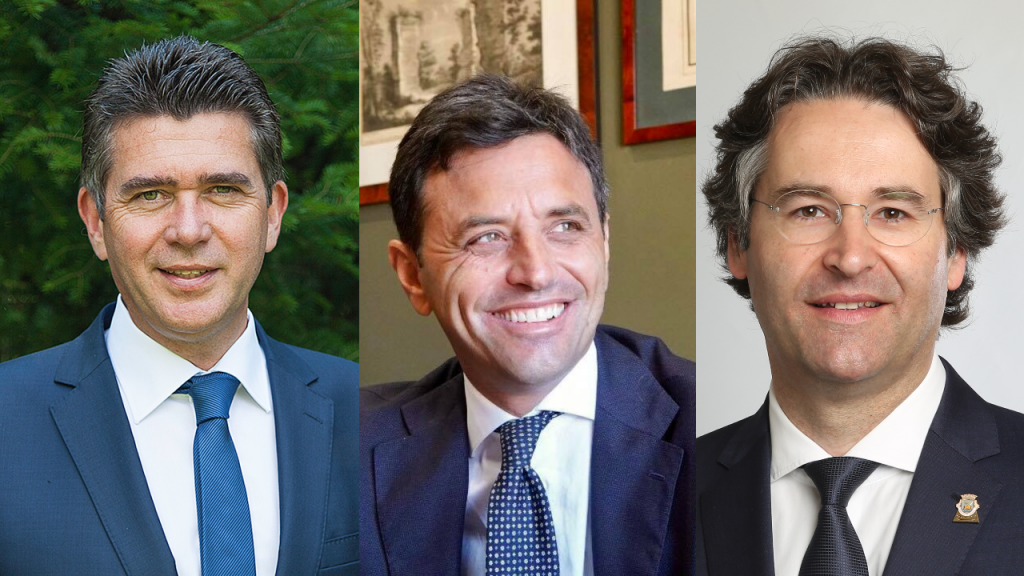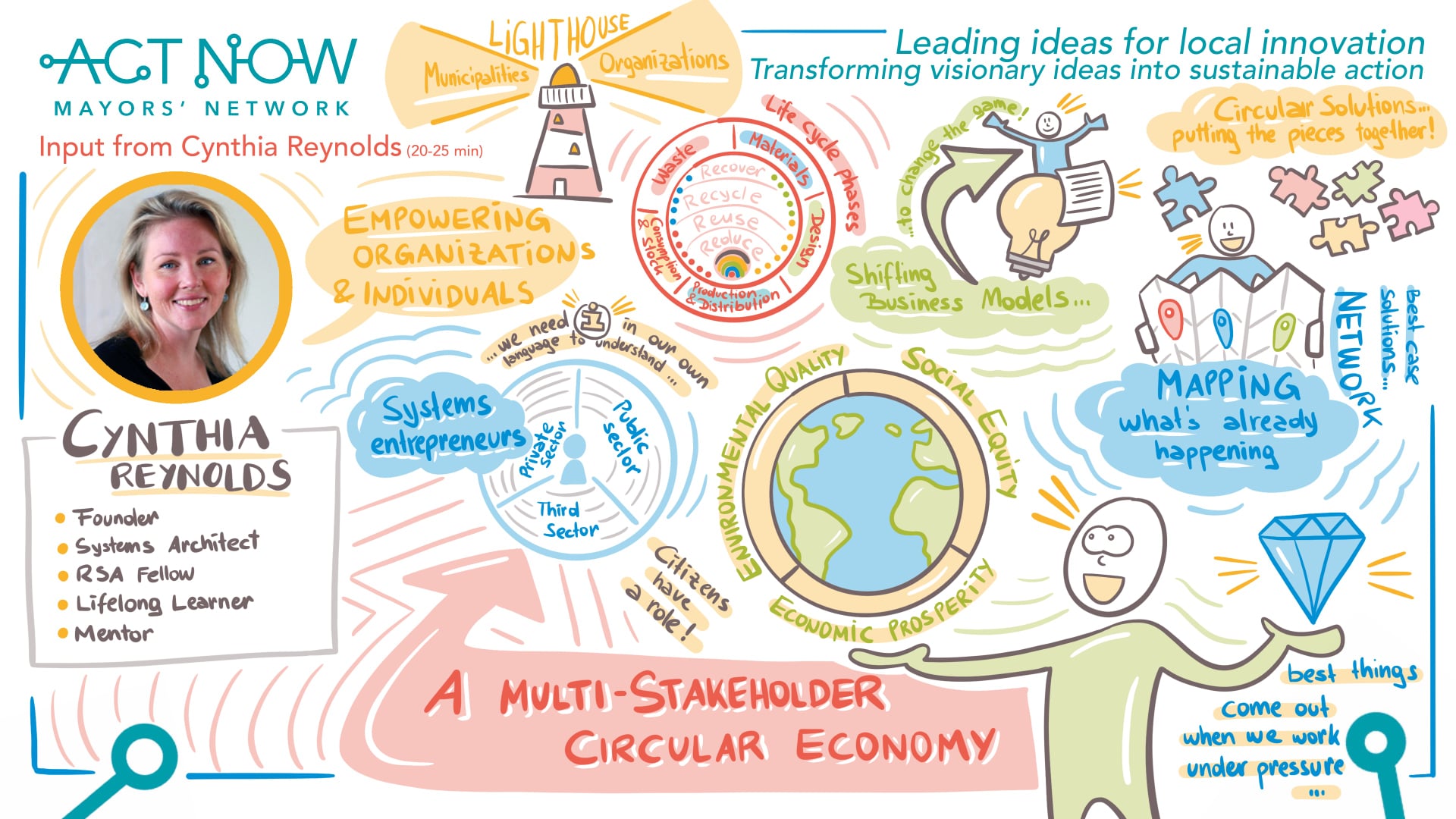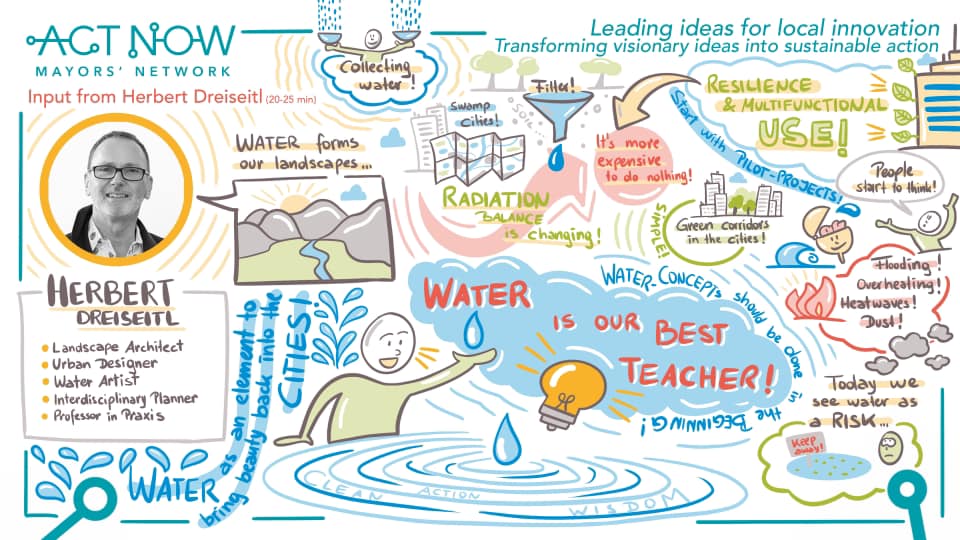The Corona pandemic forced municipalities to react promptly to unprecedented change and thus mayors to operate throughout the different layers of the crisis with diligence, resourcefulness and grit.
Being a mayor of any city is a big challenge in itself. But the increased pressure and demand to provide communities with relief during the pandemic makes it critical for citizens to remember that mayors are – above all – people, who must navigate through the same loss and grief as everyone else while remaining strong pillars of leadership.
That is why in this blog series we asked members of our ACT NOW Mayors Network to share their biggest challenges and successes throughout the pandemic:
José Manuel Ribeiro, Mayor of Valongo, Portugal
“The main mission of a mayor is to give hope to the people and the communities he represents, and should carry out his functions in a logic of temporary occupant of the “public thing” and never as an owner. I invest a lot in transparency, rigor, respect, and dialogue as decisive tools for the good performance of our functions. The population of the Municipality of Valongo, in the North of Portugal and more specifically in the Metropolitan Area of Porto, where I am Mayor, wants quality of life policies. Furthermore, we invest a lot in the reinforcement of cultural and territorial identity, we try to make each person identify with our traditions, developing a feeling of pride and belonging, which in a metropolitan area is a huge challenge. For me it has been an extraordinary experience, even because this was, in fact, one of my biggest dreams since I was a child – being Mayor of the place where I grew up – and that helped me to become what I am today. In this role I try never to miss the opportunity to make a difference in the lives of the people and the community, and in this way contribute to a path of greater hope and sustainability in this extraordinary land.
This pandemic has taught us a lesson in humility before the gigantic force of nature. We have to realize that we need each other permanently, because it is through intense cooperation that we are able to overcome obstacles and move forward. In Valongo, cold blood and common sense prevailed. Despite the fact that, in some moments, this pandemic was especially hard on our community, we tried to keep, as much as possible and with the necessary adaptations, all the responses to the citizen in operation. We increased the social support services and tried to inform and, above all, to be present so that each citizen would never feel lost or abandoned. It was also a huge opportunity for us to take a technological leap, implementing tele-work and online classes and many other projects that arose from the learning that this pandemic brought us.
Our priority has always been to save lives and ensure the health of our entire community. With the support of my entire team, I have always taken with one principle: Leave no one behind! It was especially challenging to combat isolation and support the elderly who, suffered tremendously from the pandemic but also from the collateral damage of their protection: isolation and from this problem, we moved forward to a project that I am very proud of. It is called ASA 4.0 (We Believe in Active Seniors) and it has developed out of our senior academies that involve more than 800 seniors. And because the pandemic has physically removed these extraordinary citizens from our community, we have used technology to strengthen the connection of this very active community by purchasing more than 800 adapted tablets that will be made available to participants in the active aging program. We are developing a huge technological empowerment action for this age group and it will be something that, despite being unprecedented in the Portuguese reality, we believe will bring many results and will be an example to be followed by many other municipalities and regions.”
Ciro Buonajuto, Mayor of Ercolano, Italy
“In this pandemic we have managed to guarantee health stability but also social stability. My city is very poor and you have to work hard to keep crime out the door.
My biggest challenge, therefore, concerns the social stability and health stability that we have managed to guarantee. My biggest victory was to restart with tourism and keep the Camorra defeated.”
Peter Eisenschenk, Mayor of Tulln an der Donau, Austria
“The most important challenge came right at the beginning of the pandemic. It was necessary to quickly convey to the population the credible feeling that they can rely on the municipal leadership as a crisis manager. This was achieved very well. On the one hand, there was an information offensive about everything that was happening in the city. On the other hand, as part of the “City of Togetherness” initiative, among other things, a delivery service for food was coordinated and a telephone support centre was set up.
We recognised early on that testing has a key function. Tulln was the first city in Austria to organise a test street (antigen testing). That was not easy because even higher-level authorities had doubts about the usefulness of antigen testing. A few weeks later, the whole of Austria followed suit.
We were also pioneers in establishing vaccination routes. The first community vaccination street in Lower Austria started in February in Tulln, because we were convinced that the medical practices did not have the necessary capacity to vaccinate many people quickly.”
Want to read even more captivating stories from the members of our ACT NOW Mayors’ Network? Here are the first part and second part of this blog series.


